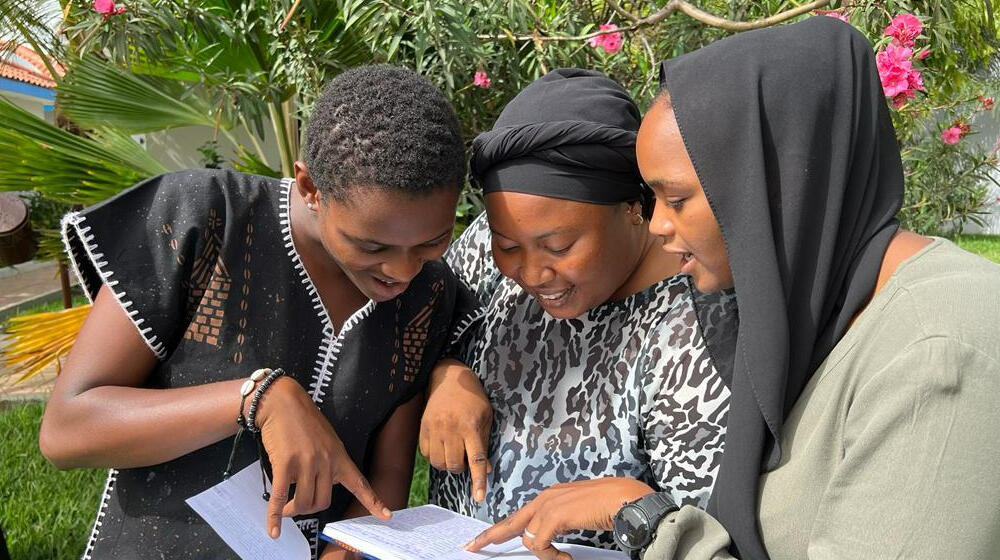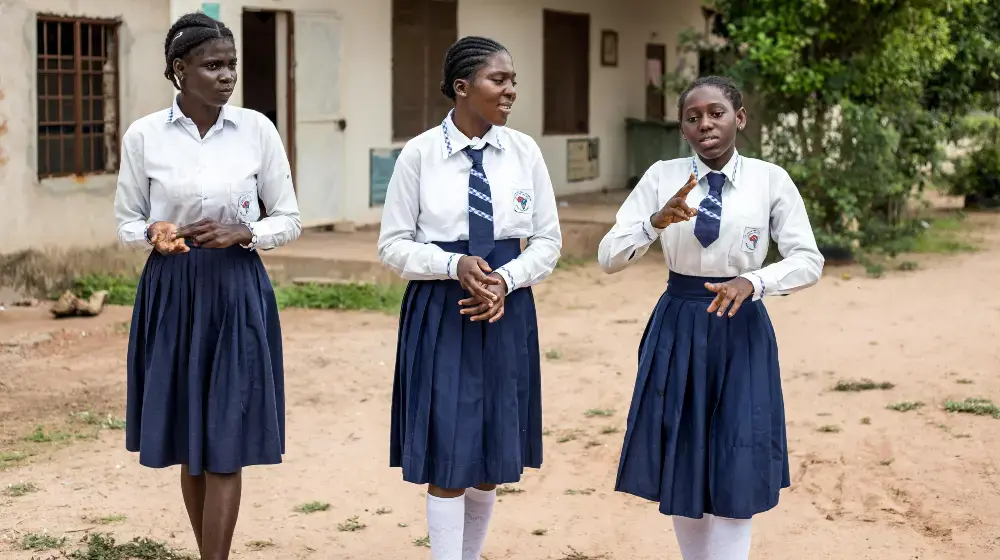“Storytelling is an effective way to advance advocacy and raise awareness on why we must end FGM now!” - Fatou Darboe, FGM survivor, activist and teacher
The 2019-2022 Demographic and Health Survey shows that the prevalence of Female Genital Mutilation (FGM) is still high in The Gambia with a rate of 73% of women aged 15-49 years in the country having been subjected to the practice. Its high prevalence not just in The Gambia but globally, highlights the need to intensify efforts to promote its eradication in the country and calls for the utilisation of strategies that will effectively inform a change in perceptions and norms in practicing communities. One of such strategies is the amplification of positive stories of change.
Storytelling is an essential tool for documenting progress, inspiring positive change and advocating for reforms in laws and policies. It shines light on social issues and calls for action to change the status quo, thus creating public awareness and sparking conversations at various levels.
In the advocacy to eradicate FGM in The Gambia and around the world, human-interest storytelling continues to be used to amplify the voices of survivors and other stakeholders, influence voluntary individual and community abandonment of the practice, and drive critical action in decision making processes.
With support from UNFPA through the UNFPA-UNICEF Joint Programme on the Elimination of FGM, 15 young women were engaged in a four-day creative workshop on techniques for storytelling to end FGM, facilitated by Think Young Women. Through the workshop, participants engaged in idea exchanges, pitched story ideas, and received guidance on how to use their voices and platforms to promote the eradication of FGM.
Fatou Darboe is a survivor of FGM and was one of the participants trained on FGM storytelling. For her, the skills gained through the creative workshop will avail her a platform to share stories of survivors like herself and task policy and lawmakers to take concrete steps to end FGM. “As an FGM survivor, I want to see communities being more receptive and empathic of those of us who choose to share our stories. Communities should stop the discrimination and listen to the very women whose experiences need to be heard - those who underwent FGM. Our stories matter.” As a teacher, Fatou engages her students on issues around FGM and other harmful practices. She holds conversations with them about their health and wellbeing and encourages them to take the conversations to their homes and communities too.
Protecting women and girls from FGM requires a significant push from all stakeholders and storytellers cannot be left behind. Through this UNFPA-supported initiative, the trained storytellers will engage communities and individuals to document positive stories of change, amplify survivor experiences and make a case for increased commitment to end FGM in The Gambia. Thus, they will contribute towards protecting the 68 million girls around the world estimated to currently be at risk of being mutilated by 2030.
UNFPA continues to support Government and Civil Society Organisations including young women-led groups in The Gambia like Think Young Women to advance efforts to eliminate FGM through a multi-prong approach centered around the promotion of the fundamental human rights of women and girls.
***
Media contact: Haddy Jonga – Programme Analyst, Communications jonga@unfpa.org




